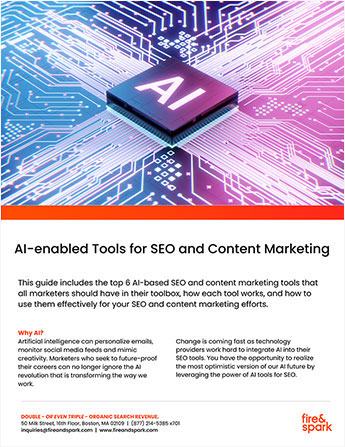In today’s highly competitive online landscape, having a strong meta description is crucial for improving click-through rates and boosting search engine visibility. Meta descriptions play a significant role in summarizing the content of a webpage and enticing users to click on your link. In this article, we will discuss the importance of meta descriptions and provide valuable tips on how to write compelling and effective meta descriptions that will drive more traffic to your website.
Introduction to meta descriptions
Meta descriptions are HTML attributes that provide concise summaries or descriptions of the content of a web page. They appear underneath the page title in search engine results pages (SERPs) and play a crucial role in attracting users to click on a particular link. Meta descriptions serve as a preview of what the page has to offer, influencing a person’s decision on whether to visit the site or not. Understanding how to create effective meta descriptions can significantly impact the visibility and click-through rates of your website.
Key points to consider when writing meta descriptions:
- Relevance: Ensure that the meta description accurately reflects the content of the page.
- Length: Aim for a length of around 150-160 characters to ensure the entire description is visible in search results.
- Call-to-action: Engage users by including a compelling call-to-action to encourage clicks.
- Unique: Avoid using duplicate meta descriptions across multiple pages to maximize their SEO potential.
- Keywords: Incorporate relevant keywords within the meta description to improve search engine rankings.
To craft compelling meta descriptions, it is essential to understand the purpose they serve and how to optimize them effectively. By mastering the art of writing meta descriptions, you can improve your website’s visibility, drive organic traffic, and enhance user engagement.
Importance of meta descriptions for SEO
-
Boost search engine ranking: Meta descriptions play a crucial role in improving a website’s SEO. When a meta description is well-crafted with relevant keywords and provides a clear and concise summary of the page’s content, it helps search engines understand the relevance of the page, thus positively impacting search engine rankings.
-
Increase click-through rates: An appealing meta description not only informs search engine users about the page’s content but also entices them to click on the link. By crafting compelling meta descriptions that address user intent and include a call-to-action, websites can increase their click-through rates and attract more organic traffic.
-
Enhance user experience: Meta descriptions act as a preview of the content that users can expect to find on a webpage. When users are able to quickly grasp the relevance of the page from its meta description, they are more likely to engage with the content, improving overall user experience and reducing bounce rates.
-
Drive targeted traffic: By including relevant keywords in meta descriptions, websites can attract more targeted traffic from users actively searching for specific information. This helps in bringing quality traffic to the site, increasing the chances of conversions.
-
Stand out in search results: Well-crafted meta descriptions that are unique and engaging can help websites differentiate themselves from competitors in search engine results. A compelling meta description can make a page more noticeable and encourage users to click on the link, ultimately driving more traffic to the site.
For more information on meta descriptions and how to write them effectively, check out this resource.
Impact on search engine rankings
- Meta descriptions play a crucial role in affecting search engine rankings. While they are not a direct ranking factor, they indirectly influence rankings in multiple ways:
- Improve click-through rates: Compelling meta descriptions can entice users to click on your website, which can increase your click-through rate (CTR). Search engines like Google consider CTR as a ranking signal, so higher CTRs could lead to improved rankings.
- Relevance and quality: Well-crafted meta descriptions that accurately reflect the content on your page signal to search engines that your site is relevant to users’ queries. This relevance can positively impact your rankings.
- Reduce bounce rates: When users find what they are looking for based on your meta description, they are more likely to stay on your site. Lower bounce rates can indicate to search engines that your content is valuable and engaging, ultimately benefiting your rankings.
- Differentiation from competitors: Unique and persuasive meta descriptions can make your site stand out in search results. More clicks and engagement can signal to search engines that your site is a reputable source of information, potentially boosting your rankings.
By optimizing your meta descriptions for relevance, quality, and user engagement, you can potentially improve your search engine rankings and drive more organic traffic to your website.
Role in attracting clicks and increasing traffic
-
Improved Click-Through Rates (CTR): Meta descriptions play a crucial role in attracting clicks by providing users with a concise summary of the page’s content. A well-crafted meta description can entice users to click through to your website by offering a preview of what to expect.
-
Increased Visibility in Search Results: Meta descriptions appear below the page title in search engine results pages (SERPs). A compelling meta description that accurately reflects the page’s content can make your listing stand out among the competition, increasing the likelihood of users clicking on your link.
-
Enhanced User Experience: When users perform a search, they rely on meta descriptions to determine the relevance and quality of a webpage. By writing descriptive and informative meta descriptions, you can help users find the content they are looking for more easily, improving their overall experience and increasing the chances of them visiting your site.
-
Potential for Higher Rankings: While meta descriptions themselves do not directly impact search engine rankings, they indirectly contribute to SEO efforts by attracting more clicks and increasing dwell time on your website. This user engagement signals to search engines that your content is valuable, potentially leading to improved rankings over time.
By focusing on writing compelling meta descriptions that accurately reflect your page’s content and appeal to users’ interests, you can effectively attract clicks and increase traffic to your website.
Best practices for writing effective meta descriptions:
- Keep it concise: Meta descriptions should be between 50-160 characters to ensure that they are fully displayed in search results.
- Include relevant keywords: Use keywords that are relevant to the content of the page to improve visibility and attract the right audience.
- Be descriptive: Clearly describe the content of the page in a way that entices users to click through to your website.
- Match the content: Make sure the meta description accurately reflects the content on the page to build trust with users and search engines.
- Use a call-to-action: Encourage users to take action by including a compelling call-to-action in your meta description, such as "Learn more," "Shop now," or "Discover how."
- Avoid duplication: Each meta description should be unique and specific to the page it is describing to avoid confusion and provide valuable information.
- Focus on user experience: Write meta descriptions that provide value to users by addressing their needs and interests.
- Test and refine: Regularly review the performance of your meta descriptions using analytics to see what works best and adjust accordingly.
- Consider mobile users: With the rise of mobile search, ensure that your meta descriptions are optimized for smaller screens and quick browsing.
For more information on writing effective meta descriptions, check out this detailed guide by Moz: Moz – How to Write Meta Descriptions in a Constantly Changing World.
Utilizing keywords and engaging language
-
Keywords: Utilizing relevant keywords in your meta description is crucial for improving your website’s search engine visibility. Think about the key terms that your target audience might use when searching for your content and incorporate them naturally into your description.
-
Engaging language: While incorporating keywords is essential, it is also important to ensure that your meta description is engaging and compelling. Use language that entices users to click on your link by highlighting the benefits of your content or creating a sense of urgency.
-
Strategic placement: Place your keywords strategically within the meta description to maximize their impact. Ideally, include your primary keyword early on in the description to catch the attention of both users and search engines.
-
Avoid keyword stuffing: While it is important to include keywords, avoid overloading your meta description with them. This can make the description appear spammy and turn off potential visitors.
-
Call to action: Consider adding a call to action at the end of your meta description to encourage users to click through to your website. Phrases like "Learn more," "Discover," or "Find out now" can create a sense of curiosity and prompt action.
By utilizing relevant keywords and crafting engaging language in your meta descriptions, you can increase the chances of driving more traffic to your website and improve your overall search engine rankings.
Keeping it concise and specific
When writing meta descriptions, it is crucial to keep them concise and specific. Here are some key points to keep in mind:
- Length: Stick to the recommended length of around 150-160 characters to ensure that your meta description is displayed properly in search results.
- Clarity: Clearly convey what the page is about in a succinct manner. Use clear and straightforward language to communicate the page’s content to users.
- Relevance: Make sure the meta description accurately reflects the content of the page. Avoid misleading users with deceptive or irrelevant descriptions.
- Keywords: Include relevant keywords in your meta description to help improve visibility in search results. However, avoid keyword stuffing, as it can negatively impact the user experience.
- Call-to-action: Consider adding a compelling call-to-action to entice users to click on your search result. This could be a specific instruction, a question, or a statement that prompts engagement.
- Unique: Each meta description should be unique to the page it represents. Avoid using generic descriptions that don’t differentiate your page from others in search results.
By keeping your meta descriptions concise and specific, you can effectively communicate the content of your pages to users and improve their experience with your website.
Customizing meta descriptions for each page
When customizing meta descriptions for each page on your website, it is essential to consider the following key points:
-
Relevance: Ensure that the meta description accurately describes the content of the specific page it is associated with. A relevant meta description increases the likelihood of users clicking through to your website.
-
Keywords: Incorporate relevant keywords that users might use to search for content related to your page. This can improve your page’s visibility in search engine results.
-
Length: Meta descriptions should ideally be between 150-160 characters to ensure they are displayed fully in search engine results. Make sure to keep them concise, informative, and engaging.
-
Call-to-action: Including a call-to-action in your meta description can encourage users to click on your link. Phrases like "Learn more," "Shop now," or "Get started" can prompt users to take action.
-
Unique descriptions: Avoid duplicating meta descriptions across multiple pages. Each page on your website should have a unique meta description that accurately reflects its content.
Customizing meta descriptions for each page requires time and effort, but it is crucial for improving your website’s visibility in search engine results. By tailoring meta descriptions to specific pages, you can attract more organic traffic and increase user engagement on your site.
For more tips on writing effective meta descriptions, check out this guide.
Testing and optimizing meta descriptions for better results
When it comes to meta descriptions, it is crucial to test and optimize them to ensure better results. Below are some strategies you can implement to achieve this:
-
A/B testing: Create multiple versions of your meta descriptions and track their performance to see which ones lead to higher click-through rates. Use tools like Google Analytics to analyze the data and make informed decisions on which description works best.
-
Include relevant keywords: Ensure that your meta description contains relevant keywords that accurately describe the content of the webpage. This can improve your search engine ranking and attract the right audience to your site.
-
Use action-oriented language: Incorporate a call-to-action in your meta description to encourage users to click on your link. Phrases like "Learn more," "Sign up today," or "Get started" can entice visitors to visit your page.
-
Maintain an appropriate length: Meta descriptions should ideally be between 150-160 characters to ensure they are fully displayed in search engine results. Keep them concise and impactful to capture the reader’s attention.
-
Monitor performance: Regularly check the performance of your meta descriptions using tools like Google Search Console. Analyze metrics such as click-through rate and adjust your descriptions accordingly to maximize results.
By testing and optimizing your meta descriptions, you can improve your website’s visibility and attract more targeted traffic. Stay updated with the latest SEO trends and continuously refine your meta descriptions for better results.
Examples of well-written meta descriptions
-
Example 1:
Meta Description: "Discover the top tips for writing compelling meta descriptions and increase your website’s click-through rate. Our comprehensive guide will show you how to optimize your meta descriptions for better visibility on search engines." -
Example 2:
Meta Description: "Looking to improve your SEO strategy? Learn how to craft effective meta descriptions that captivate your audience and entice them to click through to your website. Boost your search engine rankings with our expert tips." -
Example 3:
Meta Description: "Struggling to attract visitors to your site? Master the art of writing compelling meta descriptions that drive organic traffic and improve your online visibility. Elevate your content strategy with our proven techniques." -
Example 4:
Meta Description: "Want to stand out in search engine results? Discover how to create irresistible meta descriptions that increase your website’s visibility and drive more clicks. Unlock the potential of your online presence with our guidance." -
Example 5:
Meta Description: "Enhance your online presence with killer meta descriptions that grab attention and compel users to click through to your website. Improve your website’s performance and drive more traffic with our actionable tips."
For further information on meta descriptions and how to write effective ones, refer to this article by Yoast.
Conclusion
In conclusion, meta descriptions play a crucial role in SEO by impacting search engine rankings and attracting clicks to your website. By following best practices such as utilizing keywords, engaging language, and keeping it concise, you can effectively customize meta descriptions for each page and test them for optimal results. Well-written meta descriptions can significantly increase traffic to your site and improve overall user experience. By understanding the importance of meta descriptions and how to write them effectively, you can enhance your website’s visibility and ultimately drive more organic traffic.
To learn more about writing compelling meta descriptions and improving your website’s visibility on search engines, visit https://DeltaWriter.com for expert tips and guidance. Master the art of crafting effective meta descriptions and watch your website’s traffic soar.

Director @Anyalpha, a Top Software Development Company offering Mobile App Development and Website Development Services to Businesses & Startups.


